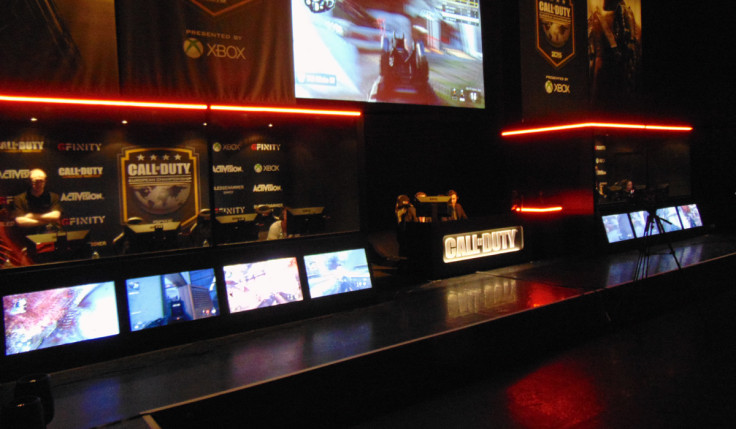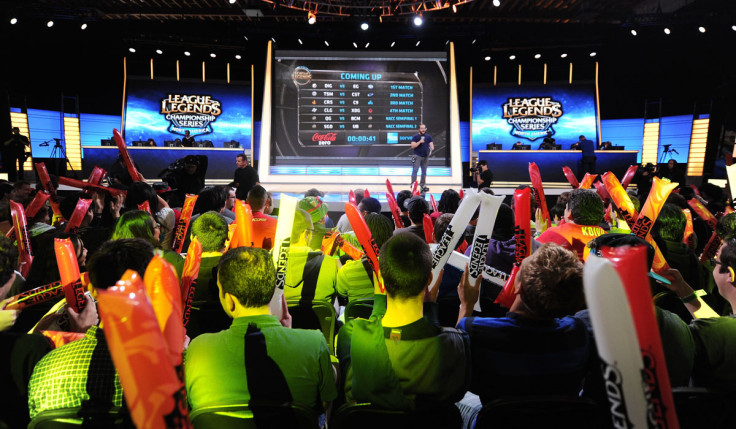eSports Olympics would damage the image of video games

I've seen the idea of eSports, or professional video games for the unitiated, getting their own version of an Olympic games. It makes sense. eSports are burgeoning, profitable and – although you could debate this – require similar skills to second-class Olympic sports like chess and darts.
As a matter of fact, in South Korea, where professional Starcraft matches are the most popular, Sports have already been recognised as Olympics-worthy. It's not the same as eSports getting their very own, specific version of an Olympics, but the fact their acceptance into the existing Games is already being lobbied perhaps suggests that a global, Olympics-esque tournament isn't far away.
Personally, though, I wouldn't like that to happen. To be honest, it comes down to nothing grander than personal preference.
I've met eSports champions and they're all dedicated, worthy and talented to the point that they deserve a global tournament to compete in. There's no peculiarity, or credibility gap, holding pro video games back. And there's no doubt the structure is there.
At last year's Blizzcon, I was in the audience for the Starcraft, World of Warcraft and Hearthstone grand finals, and saw first hand how eSports were neither a novelty nor haphazardly organised. For the duration of the eSports events, the Anaheim Convention Center was as atmospheric and well-designed as its neighbouring Honda Center, home to local hockey team The Ducks.
So there's no doubt that all the essential attributes are in place. It's just that I think that eSports radiate something negative, or at least reductive, about video games.
The basis of eSports, naturally, is challenge. By that I mean that to win at eSports, you have to excel at the mechanical, computational parts of video games – you have to be good at the central GAME aspect.
eSports are not interested in, or concerned with, any sort of artistic reckoning or merit. They boil games down to their simplest – you might say basest – nature, which is the interaction between various systems, and the player.
Given that video games already have a reputation for being artless, I'm unconvinced that eSports, which vicariously promote a very specific, very narrow relationship to games, are healthy for video gaming's image.
'eSports are not interested in, or concerned with, any sort of artistic reckoning or merit. They boil games down to their simplest – you might say basest – nature, which is the interaction between various systems, and the player.'
eSports make money and draw a crowd, but they represent videogames as mechanical, interactive objects. Even by name, they put video games into the same category as sport. And video games are not sport.
This has nothing to do with a value judgement, as if video games are "better" than sport or vice-versa. It's simply true that video games are made up of more than just their mechanics and machinations.
Increasingly, they're comprised of music, narrative and evocative imagery. They have, in some cases, legitimate artistic presence. Games are not the digital equivalent of a bowling ball and skittles. They are – or at least, they have the potential to become – artworks.
And if eSports become the face of videogames, packaged in an Olympic-style jamboree, I worry that the world at large will never understand or care about what video games are trying to be.

Likewise, I imagine the gaming industry will respond, as it always does, by doing the wrong thing, namely producing more games which are based on mechanics conducive to eSports competitions. To reiterate, this is a personal preference. But I'm tired of mechanics-led game design, and the seemingly pervasive idea that "systems" should be the game-maker's priority.
Aged, tired, and myopic
I'm being a little paranoid. It's unlikely that an eSports Olympics would inspire the entire gaming industry to suddenly start developing titles that are like Starcraft, in lieu of anything else. But an eSports Olympics would be a disheartening precedent - the wrong "message." It would shift more focus onto the aged, tired, myopic version of video games, where what the player does is more important that what s/he thinks, or feels.
Video game publishers and developers might not respond to a successful eSports Olympics by directly producing games that were likely to be featured in competition. But the lazy, non-explorative systems-focused school of game design would have found another source of validation, and would presumably continue on.
I don't want to come down entirely negative on the idea of an eSports Olympics. Again, the gaming champions I've met have all worked extremely hard. Naturally, they're great at what they do, so who am I to deny their efforts and abilities an outlet? My reservations have nothing to do with downplaying or questioning anybody's achievements or the idea of eSports in general. Merely, I like to think of videogames as a form of expression.
I'd never go so far as to crown video games as art, but they're certainly different from sport. And to fashion them into a global, competitive tournament would, I think, undermine and misrepresent the myriad non-mechanical qualities that videogames own.
Ed Smith writes about games, films and culture for IBTimes UK. He has also written for The Observer, Vice, New Statesman and Edge magazine. Find him on Twitter @mostsincerelyed
© Copyright IBTimes 2025. All rights reserved.



















